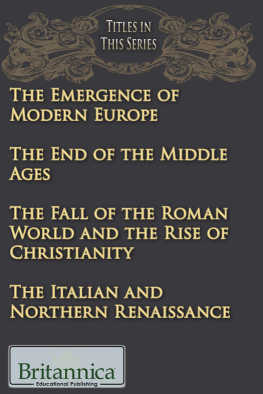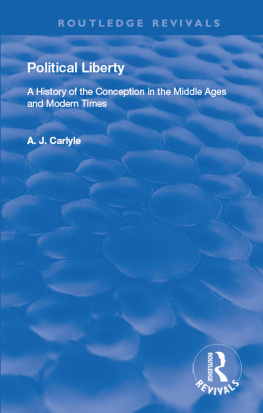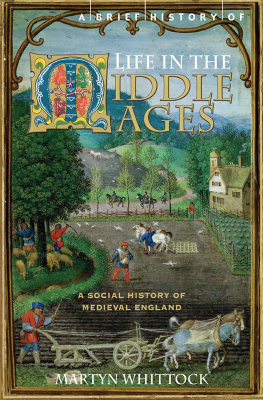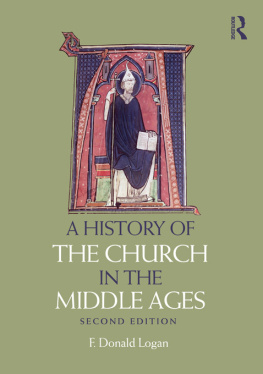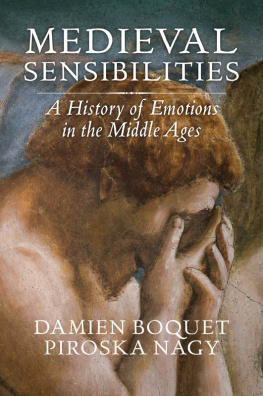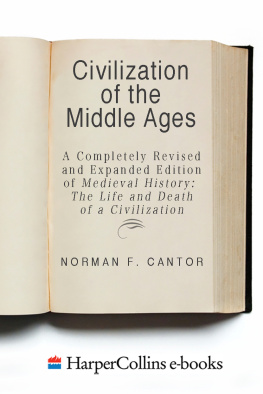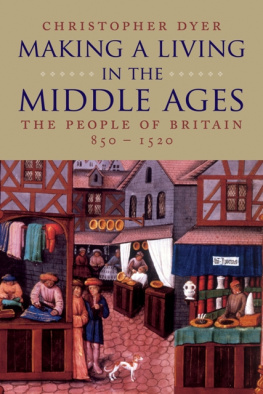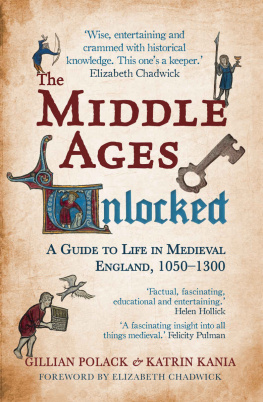Routledge Revivals
Economic Growth
First published in 1962, this book challenges the notion that the later Middle Ages failed to sustain the economic growth of earlier centuries, suggesting that historians have been preoccupied with absolute levels of output over more important questions of output per head. It also argues they have ignored the disastrous fall in living standards in the thirteenth century and the astonishing rise that occurred later. Using national taxation records and records of urban government, as well as research from fields ranging from parliamentary history to statistics of foreign trade, the author attempts to establish that the later Middle Ages has also been wrongly defamed in political affairs.
Economic Growth
England in the Later Middle Ages
A.R. Bridbury
First published in 1962
by Routledge
This edition first published in 2016 by Routledge
2 Park Square, Milton Park, Abingdon, Oxon, OX14 4RN
and by Routledge
711 Third Avenue, New York, NY 10017
Routledge is an imprint of the Taylor & Francis Group, an informa business
1962 George Allen & Unwin Ltd
All rights reserved. No part of this book may be reprinted or reproduced or utilised in any form or by any electronic, mechanical, or other means, now known or hereafter invented, including photocopying and recording, or in any information storage or retrieval system, without permission in writing from the publishers.
Publishers Note
The publisher has gone to great lengths to ensure the quality of this reprint but points out that some imperfections in the original copies may be apparent.
Disclaimer
The publisher has made every effort to trace copyright holders and welcomes correspondence from those they have been unable to contact.
A Library of Congress record exists under LC control number: 64055974
ISBN 13: 978-1-138-64783-1 (hbk)
ISBN 13: 978-1-315-62684-0 (ebk)
Economic Growth
ENGLAND IN THE LATER MIDDLE AGES
A. R. BRIDBURY
Lecturer in Economic History
at The London School of Economics
FIRST PUBLISHED IN 1962
This book is copyright under the Berne Convention. Apart from any fair dealing for the purposes of private study, research, criticism or review, as permitted under the Copyright Act, 1956, no portion may be reproduced by any process without written permission. Enquiries should be addressed to the publisher.
George Allen & Unwin Ltd, 1962
PRINTED IN GREAT BRITAIN
in 11 point Juliana type
BY THE BLACKFRIARS PRESS LTD
LEICESTER
CONTENTS
ACKNOWLEDGEMENTS
I should like to thank the Town Clerks and their colleagues of Norwich, Yarmouth, Kings Lynn, Exeter, Reading, Nottingham, and Leicester, for their readiness in putting at my disposal the records in their keeping. I am particularly indebted to the Town Clerk of Salisbury, Mr G. Richardson, for many kindnesses, and to the Borough Council of Salisbury for expediting my work by allowing their medieval records to be lodged in the University of London library. I should also like to thank the Secretary and Keeper of Records and his colleagues at the Duchy of Cornwall Office for turning out every scrap of medieval record that might possibly bear on my needs; the Trustees of the Leon Bequest who by appointing me to a Leon Fellowship in 1952 enabled me to embark upon the work that led to the writing of this book; the Committee of the Central Research Fund of the University of London for defraying my travelling expenses; and Miss F. M. Chandler of the Geography Department of the London School of Economics for her care in preparing the graphs.
My final debts are to two colleagues, Miss Olive Coleman and Professor F. J. Fisher, for much stimulus, and for invaluable criticism of the typescript.
An Old English Town: Life in An Old English Town, M. D. Harris, London 1898.
C.P.R.: Calendar of Patent Rolls.
Declining Population: M. Postan : Some Economic Evidence of Declining Population in the later Middle Ages, Ec.H.R. Second Series, Vol. II, No. 3 (1950).
D.C.O.: Duchy of Cornwall Office.
E.E.T.S.: Early English Text Society.
Ec.H.R.: Economic History Review.
E.H.R.: English Historical Review.
M.M.V.: Medieval Merchant Venturers, E. M. Carus-Wilson, Methuen 1954.
Prejudice and Promise: Prejudice and Promise in Fifteenth Century England, C. L. Kingsford, Oxford, 1925.
P.C.C.: Prerogative Court of Canterbury.
P.R.O.: Public Record Office.
Rot. Parl.: Rotuli Parliamentorum.
Seven Centuries: E. H. Phelps-Brown and Sheila V. Hopkins : Seven Centuries of the Prices of Consumables compared with Builders Wage-rates, Economica, New Series, Vol. 23, No. 92, Nov. 1956.
Social England: Social England in the Fifteenth Century, A. Abram, Routledge, 1909.
Studies: Studies in English Trade in the Fifteenth Century, ed. E. Power and M. Postan, Routledge, 1933.
Town Life: Town Life in the Fifteenth Century, Mrs J. R. Green, Macmillan, 1894.
Trans. R. H. S.: Transactions of the Royal Historical Society.
V.C.H.: Victoria County History.
Work and Wages: Six Centuries of Work and Wages, J. E. Thorold Rogers, London, 1884.

There is perhaps no period of English history more persistently disparaged and misrepresented than the period that begins with the Black Death of 1348 and ends with the battle of Bosworth field in 1485. In retrospect it is not difficult to see how it settled into a kind of ragged unity in mens minds. The desperate vicissitudes of the years between 1348 and 1370 handed an obvious and prolific theme to monkish reproach: for the Black Death struck England with its full impact no less than three times in those dreadful years and carried off at least one-third of the population.1 To later contemporaries there was more to these visitations than divine retribution. The Black Death was followed by the Peasants Revolt of 1381; and in the light of that melodramatic outburst of visionary madness, and systematic violence and arson, it seemed that the Black Death had scrawled a frightful augury across the countryside. Still later observers saw these terrible events as a fitting prologue to a shameful century of regicide and civil war, public dishonour and private feud : for the House of Tudor was barely established before its friends and publicists set about extenuating the dynastic weakness of its kings, and excusing their sharp rule, by vilifying the Lancastrians and Yorkists whom they had supplanted and whose remnant they presently destroyed.
This vilification was so prodigiously successful that, even today, in the ordinary readers mind, the later Middle Ages arouse few memories which are not haunted by the sombre drama of an annointed king dethroned and murdered, and of unhallowed successors struggling helplessly and wretchedly against the factious ambitions of unscrupulous opportunists.


